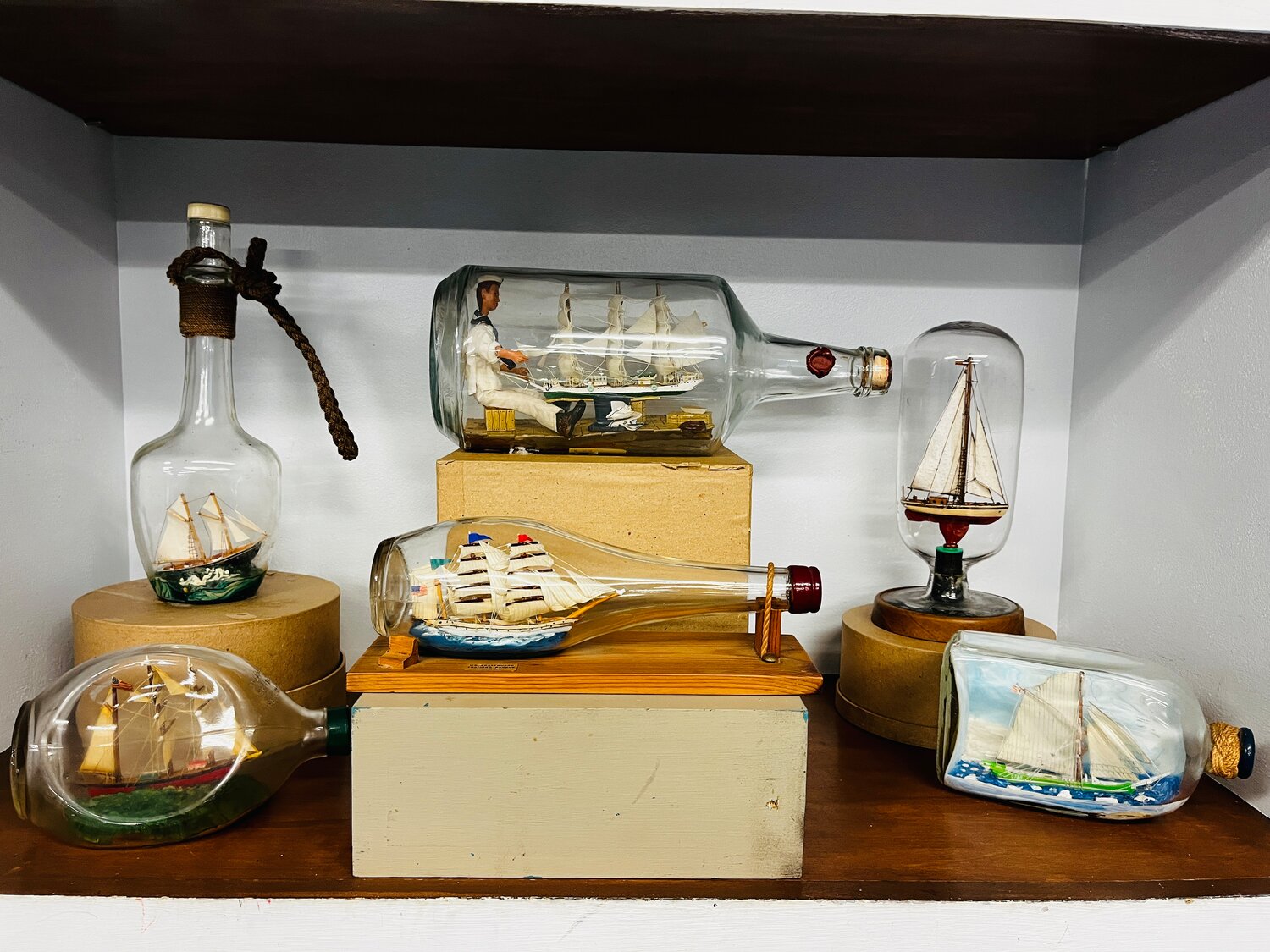This museum welcomed a Long Beach man’s bottled ships
While many young people might not know about the historical pastime of creating and collecting ships in bottles, a recent donation to the Cold Spring Harbor Whaling Museum will help ensure that the history of the hobby will not be forgotten. The family of Lester Kappel, of Long Beach, an avid collector of the most iconic variety of so-called impossible bottles who died in May, recently donated 19 bottle-encased ships from his collection, which will no doubt continue to serve as inspiration and education for generations to come.
The craft of creating a ship in a bottle dates back to the late 18th century. Gina Van Bell, the museum’s assistant director, explained that they represent an important aspect of the local artistry of the period, because many were made by whalers and sailors who spent weeks or months aboard a ship with little else to do but craftwork to pass the time.
Long Island was a crucial contributor to the whaling industry for decades, and port towns like Cold Spring Harbor were epicenters of whaling. Making ships in bottles was very common on Long Island, and on the North Shore in particular.
“Empty glass bottles, small pieces of wood and sail, and tools such as sewing needles already on hand for repairing sails, could all be used to make a ship in a bottle craft,” Van Bell wrote in a statement. “Whalers (might) keep their art as a souvenir or give it to a loved one at the end of a long voyage.”
While the Kappel family could not be reached by press time, Van Bell explained that Lester Kappel had collected ships in bottles for several decades. Part of his collection had previously been on display in the museum in 2001.
Kappel was born in Brooklyn nearly a century ago, and began coming to Long Beach with his family at age 7, spending summers there until the 1930s, in rented bungalows on Georgia Avenue in the West End. He became a full-time resident in 1939, when his family moved to Belmont Avenue.
He attended Long Beach High School, was involved in the biography club and graduated in 1940. His senior class was the last before the opening of the new middle and high school on Lindell Boulevard in 1941, before the two schools separated and moved to Lido Beach later on. (The former high school/middle school is now Lindell Elementary.)
Kappel served in the Navy, and then in the Army during World War II as an airplane mechanic. He was also a member of the Point Lookout-Lido Fire Department for 65 years, and a fire commissioner and captain of the Lido company for over five decades. He also worked with the Long Beach Public Library for nearly 40 years, joining the staff in 1983.
In addition to ships in bottles, Kappel also collected antique fire equipment, wooden duck decoys and other artifacts. When he died this spring, his family had to decide what to do with his collection of impossible bottles.
Kappel’s son Jeff reached out to the Cold Spring Harbor museum to inquire about donating them. Kappel always loved sharing the history and art with people, and the family believed that this would be the best way to inspire others to keep that history alive.
“Jeff stated that his father enjoyed sharing his collection and would want them to be seen,” Van Bell wrote. “We are grateful that he chose the museum as their permanent home where our visitors will enjoy them for years to come.”
Kappel’s collection, which the museum received on July 14, is currently being measured and fitted for glass casings, but according to Van Bell, it should be on display by Sept. 1. Some of the bottles were shown to a small group of visitors in a recent “Throwback Thursday” display.
The permanent home for the collection will be the museum’s craft workshop, which hosts presentations on art and culture as well as children’s workshops. Two shelves will be dedicated to the miniature vessels.
“We are a small museum with a collection of over 6,000 pieces and only about 10 percent of the artifacts are on display,” Van Bell wrote, “but we had to find a way for these special pieces to be seen in the way Lester would have wanted them to.”
While there are no plans yet to incorporate the ships into workshops for visitors, Van Bell said that visitors can see them before they go on permanent display at the museum’s Throwback Thursdays: Build-A-Boat Workshops, which are held at the museum every Thursday from 1:30 to 3:30 p.m.
For more information on the Whaling Museum, go to CshWhalingMuseum.org, or call (631) 367-3418.

 43.0°,
Partly Cloudy
43.0°,
Partly Cloudy 




